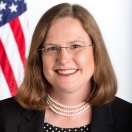
Today the world’s leaders gathered at The Hague for the third Nuclear Security Summit, an opportunity to compare notes on how far we’ve come and chart the course ahead as we work to keep sensitive materials — the building blocks of nuclear weapons — from falling into the wrong hands.
Two countries — Belgium and Italy — announced the completion of significant removals of highly-enriched uranium (HEU) and plutonium, and Japan made a major new commitment to remove highly enriched uranium and plutonium from its territory. HEU-free countries joined together in urging others to join them. Participants discussed what more we can do together to prevent nuclear smuggling. And leaders participated in a tabletop exercise on responding to radiological incidents.
As we look to the 2016 Nuclear Security Summit in the United States, we’ll continue to work to accelerate progress on removing HEU and separated plutonium from countries where it’s no longer being used. We’ll strengthen the global nuclear security architecture — the treaties, institutions, and norms that bind us together in working to secure these materials. And we’ll continue to build momentum behind the concept of assurances — voluntary steps countries can take to demonstrate to others that they are maintaining high standards of nuclear security without disclosing sensitive information.
While there is much more to be done, we should be proud of all that we have achieved since the first Summit in 2010. The United States looks forward to continuing to work with our allies and partners on this global security priority.


